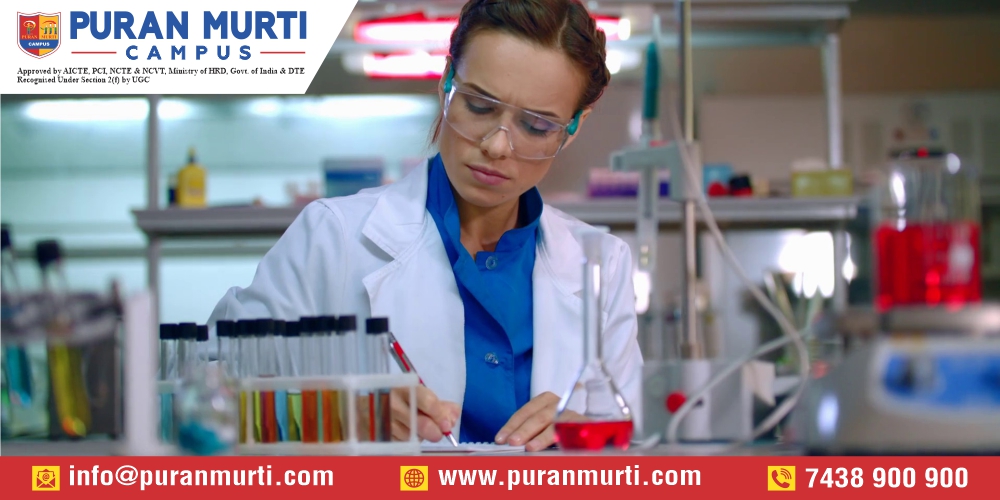Essential Skills for Medical Lab Technicians: A Diploma Overview
Posted on : 17 June, 2024 11:52 am
Introduction
- Medical lab technicians play a crucial role in the healthcare system, working behind the scenes to perform essential diagnostic tests that aid in patient care. They are responsible for collecting, processing, and analyzing biological samples, ensuring accurate and timely results that doctors rely on to make informed decisions. Their expertise in operating sophisticated laboratory equipment and adhering to stringent safety protocols helps maintain high standards of quality and reliability in medical diagnostics. Without their dedicated work, effective disease diagnosis, treatment planning, and patient monitoring would be significantly hindered.
Understanding the Diploma in Medical Lab Technician
- The Diploma in Medical Lab Technician program equips students with the skills to perform diagnostic tests and laboratory procedures. The curriculum covers areas like hematology, microbiology, clinical chemistry, and blood banking. Students gain practical experience through hands-on training in modern labs, preparing them for roles in hospitals, diagnostic centers, and research facilities, where they ensure accurate and timely medical testing.
Technical Skills
- The Diploma in Medical Lab Technician program focuses on mastering the use of various laboratory equipment. Students learn to operate microscopes, centrifuges, spectrophotometers, and automated analyzers. Proficiency in these tools is crucial for performing accurate diagnostic tests, ensuring quality control, and maintaining equipment. This technical expertise prepares graduates for efficient and effective work in clinical and research laboratories.
Analytical Skills
- Analytical skills are crucial for medical lab technicians to ensure accurate results. This involves understanding test procedures, interpreting data, and recognizing discrepancies. Through rigorous training, students learn to analyze samples precisely, maintain quality control, and troubleshoot issues. These skills are vital for diagnosing and treating patients effectively, ensuring reliability and accuracy in lab results.
Attention to Detail
- Attention to detail is critical in lab work. Medical lab technicians must meticulously follow protocols, label samples correctly, and maintain precise records. This accuracy ensures reliable test results, reduces errors, and contributes to effective patient care. Developing this skill during training is essential for performing complex tests and maintaining the highest standards of laboratory practice.
Communication Skills
- Effective communication skills are vital for medical lab technicians. They must accurately report test results to healthcare providers and collaborate with medical teams. Clear, concise communication ensures proper interpretation of data, facilitates timely diagnosis, and enhances patient care. Training programs emphasize these skills to prepare technicians for seamless interaction within the healthcare environment.
Problem-Solving Skills
- Problem-solving skills are essential for medical lab technicians, who must troubleshoot equipment malfunctions and procedural errors in the lab. Quick, effective solutions ensure the accuracy of test results and maintain workflow efficiency. Training programs focus on developing these skills, preparing technicians to handle unexpected challenges and uphold high standards of laboratory practice.
Time Management
- Time management is crucial for medical lab technicians, who must balance multiple tasks such as conducting tests, recording results, and maintaining equipment. Efficiently prioritizing duties ensures timely and accurate diagnostics. Training emphasizes time management strategies, helping technicians handle a high workload while maintaining quality and precision in their laboratory responsibilities.
Ethical and Professional Conduct
- Ethical and professional conduct is essential for medical lab technicians, ensuring patient confidentiality, accurate reporting, and integrity in testing procedures. Adherence to ethical guidelines and professional standards maintains trust and reliability in medical diagnostics. Training includes understanding legal regulations, handling sensitive information responsibly, and upholding the highest levels of professionalism in all laboratory activities.
Career Outlook
- The career outlook for medical lab technicians is promising, with opportunities in hospitals, clinics, diagnostic laboratories, and research institutions. The demand for skilled technicians is driven by advancements in medical technology and an increasing emphasis on healthcare services. Growth prospects include specialized roles, supervisory positions, and further education leading to careers in medical research or laboratory management.
Conclusion
- The Diploma in Medical Lab Technician equips students with the essential skills and knowledge required to excel in the healthcare industry. From mastering laboratory equipment to ensuring accurate results, the program emphasizes technical proficiency, analytical thinking, and professional conduct. As the demand for skilled lab technicians grows, graduates can look forward to diverse career opportunities and the potential for further specialization and advancement. By fostering critical problem-solving and effective communication skills, this diploma program prepares students to make significant contributions to medical science and patient care.

